- This photo feature showcases Ramayana Performances
across Bharat.
The first in this series was Ramayana Ballet at
Prambanan Temple, Indonesia. The second was Ramayana in
Thailand. The third was on Ramayana in Sri
Lanka. You can also read article Ramayana in
Cambodia and Hindu Deities Worshipped
in Japan
Format is brief write-up about importance
of Ramayana across India.
Introduction
Imagine a figure who has been loved and
worshipped by hundreds of millions of people, in many countries, for untold
generations. A personality upon whom countless kings have modeled themselves on.
A story which has been central to the culture of many countries, cutting across
a spectrum of religions. An epic which has shaped the lives and daily behavior
of millions and provided them an ethical framework on which to build their
understanding of their duties in the world.
We are
speaking of the Ramayana: one of the great stories of the world.
The story of the Ramayana is enacted more
often than any other story of the world. It is performed by Hindus, Buddhists
and Muslims. It is the most important cultural tradition of Thailand, Cambodia,
Indonesia, Lao PDR, Myanmar, Nepal and India. It has also been widely prevalent
in Bhutan, Singapore, Malaysia and Vietnam.
The Ramayana is a great epic of ethics
which teaches the values of life to men and women across South and South-East
Asia. Scores of generations of children have watched these performances over
1,500 years, to learn the importance of an ethical life. This has been a
cornerstone of the life of South and South-East Asia.
Many kings in these countries have taken
the name of Rama, cities and islands have been named after persons and places
in the epic. Symbols of Vishnu (whose incarnation is Rama) have been royal
emblems across the region.
Now pictures and captions by Benoy K Behl.
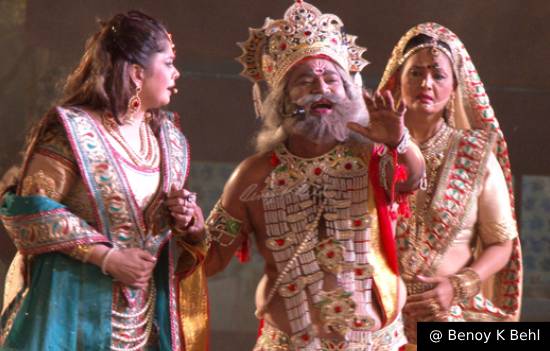 King Dasharatha’s lament. Photograph by Benoy K Behl. Lav Kush Ramlila Committee, Delhi.
King Dasharatha’s lament. Photograph by Benoy K Behl. Lav Kush Ramlila Committee, Delhi.
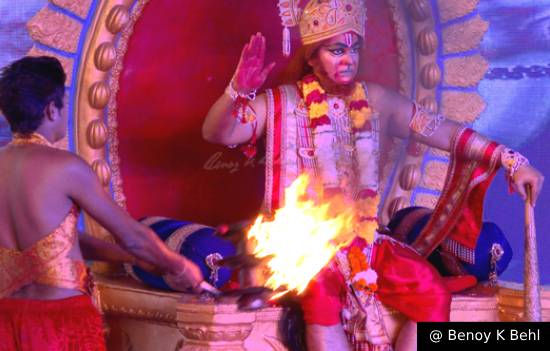 Hanuman. Photograph by Benoy K Behl. Lav Kush Ramlila Committee, Delhi.
Hanuman. Photograph by Benoy K Behl. Lav Kush Ramlila Committee, Delhi.
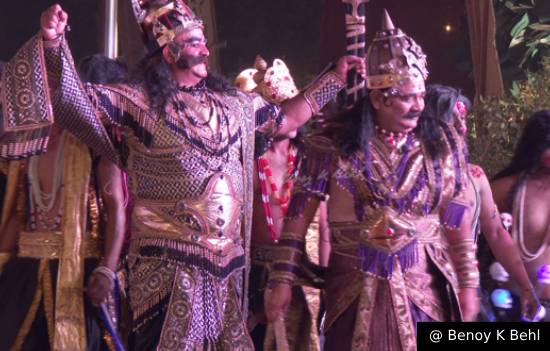 Ravana. Photograph by Benoy K Behl . Lav Kush Ramlila Committee, Delhi.
Ravana. Photograph by Benoy K Behl . Lav Kush Ramlila Committee, Delhi.
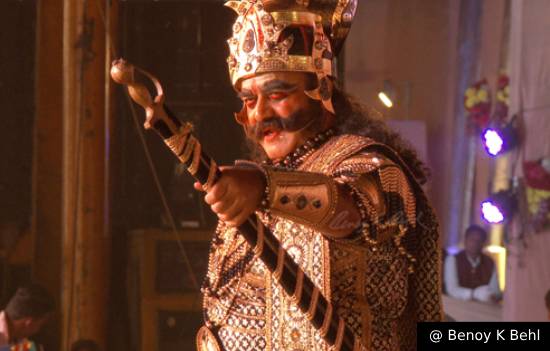 Ravana. Photograph by Benoy K Behl. Lav Kush Ramlila Committee, Delhi.
Ravana. Photograph by Benoy K Behl. Lav Kush Ramlila Committee, Delhi.
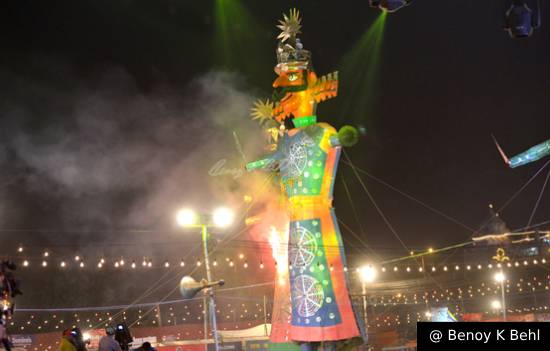 Death of Ravana. Photograph by Benoy K Behl. Lav Kush Ramlila Committee, Delhi.
Death of Ravana. Photograph by Benoy K Behl. Lav Kush Ramlila Committee, Delhi.
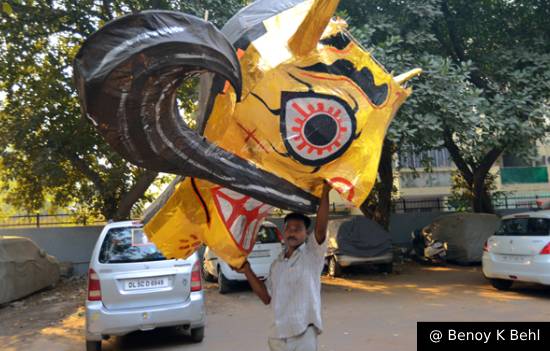 Effigies of Ravana being made. Photograph by Benoy K Behl. Delhi.
Effigies of Ravana being made. Photograph by Benoy K Behl. Delhi.
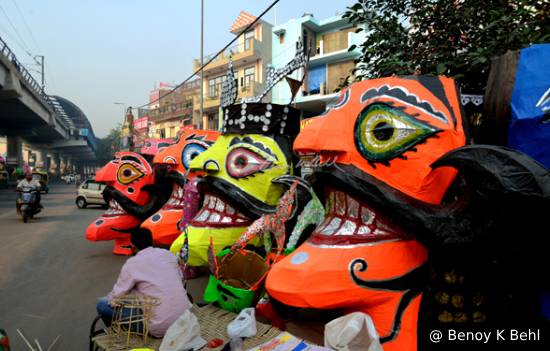 Effigies of Ravana being made. Photograph by Benoy K Behl. Delhi.
Effigies of Ravana being made. Photograph by Benoy K Behl. Delhi.
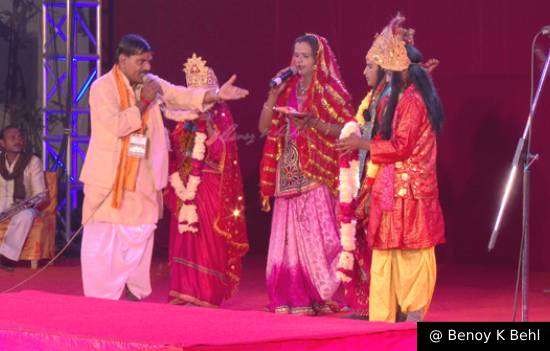 Bhojpuri Folk Tradition Ramayana. Photograph by Benoy K Behl. Indira Gandhi National Center for the Arts, New Delhi.
Bhojpuri Folk Tradition Ramayana. Photograph by Benoy K Behl. Indira Gandhi National Center for the Arts, New Delhi.
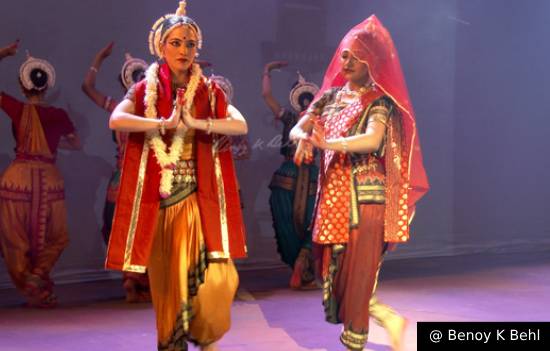 Rama and Sita, Odissi Dance. Photograph by Benoy K Behl. Kiran Sehgal & Sahitya Kala Parishad (all female cast), New Delhi.
Rama and Sita, Odissi Dance. Photograph by Benoy K Behl. Kiran Sehgal & Sahitya Kala Parishad (all female cast), New Delhi.
 Rama, Odissi Dance. Photograph by Benoy K Behl . Kiran Sehgal & Sahitya Kala Parishad (all female cast), New Delhi.
Rama, Odissi Dance. Photograph by Benoy K Behl . Kiran Sehgal & Sahitya Kala Parishad (all female cast), New Delhi.
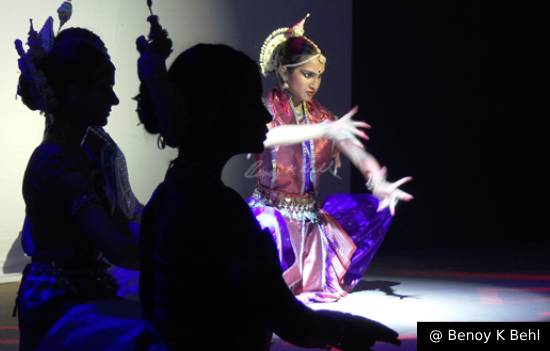 Ravana, Odissi Dance. Photograph by Benoy K Behl. Kiran Sehgal & Sahitya Kala Parishad (all female cast), New Delhi.
Ravana, Odissi Dance. Photograph by Benoy K Behl. Kiran Sehgal & Sahitya Kala Parishad (all female cast), New Delhi.
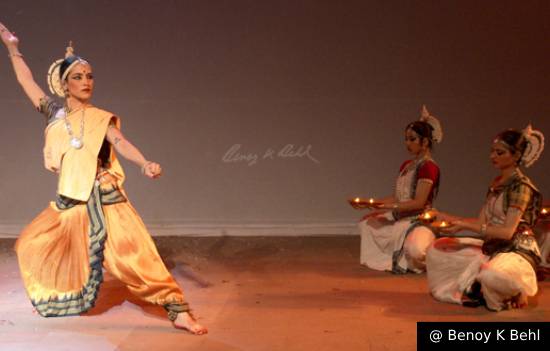 Rama, Odissi Dance. Photograph by Benoy K Behl. Kiran Sehgal & Sahitya Kala Parishad (all female cast), New Delhi.
Rama, Odissi Dance. Photograph by Benoy K Behl. Kiran Sehgal & Sahitya Kala Parishad (all female cast), New Delhi.
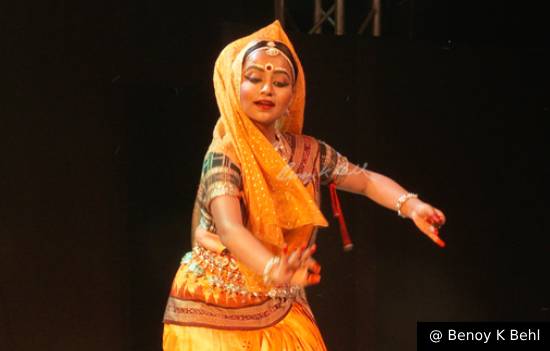 Sita, Odissi Dance. Photograph by Benoy K Behl. Kiran Sehgal & Sahitya Kala Parishad (all female cast), New Delhi.
Sita, Odissi Dance. Photograph by Benoy K Behl. Kiran Sehgal & Sahitya Kala Parishad (all female cast), New Delhi.
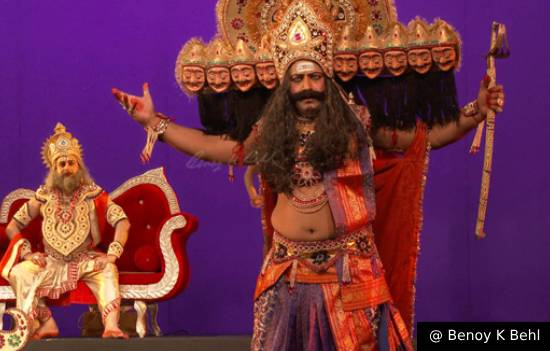 Ravana and King Janaka. Photograph by Benoy K Behl. Saroja Vaidyanathan performance, India.
Ravana and King Janaka. Photograph by Benoy K Behl. Saroja Vaidyanathan performance, India.
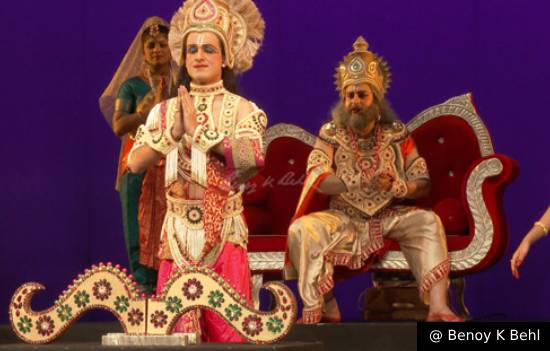 Rama with great bow and King Janaka. Photograph by Benoy K Behl. Saroja Vaidyanathan performance, India.
Rama with great bow and King Janaka. Photograph by Benoy K Behl. Saroja Vaidyanathan performance, India.
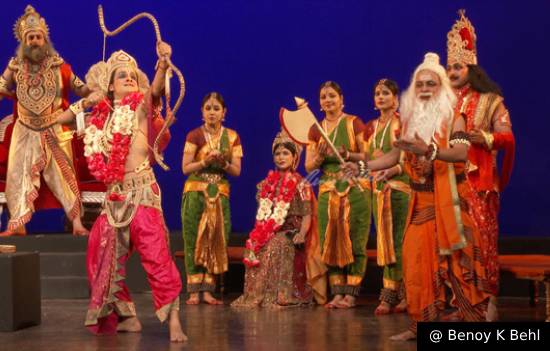 Rama in the court of King Janaka. Photograph by Benoy K Behl. Saroja Vaidyanathan performance, India.
Rama in the court of King Janaka. Photograph by Benoy K Behl. Saroja Vaidyanathan performance, India.
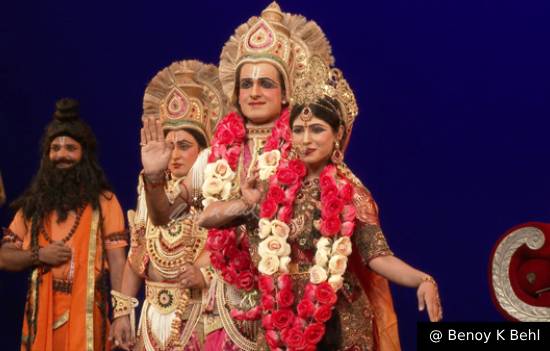 Rama and Sita. Photograph by Benoy K Behl. Saroja Vaidyanathan performance, India.
Rama and Sita. Photograph by Benoy K Behl. Saroja Vaidyanathan performance, India.
About the photographer- Benoy K Behl is a
film-maker, art-historian and photographer who is known for his tireless and
prolific output of work over the past 48 years. He has taken over 53,000
photographs of Asian monuments and art heritage, made 146 documentaries which
are regularly screened at major cultural institutions worldwide. His photographic
exhibitions have been warmly received in 74 countries around the world. He
holds the Limca Book Record for being the most travelled photographer.
This photo feature is in numerous parts. He has been
assisted in the shooting and research by Sujata Chatterji.
To read all articles by author
Also
read
1. Ramayana in
Southeast Asia